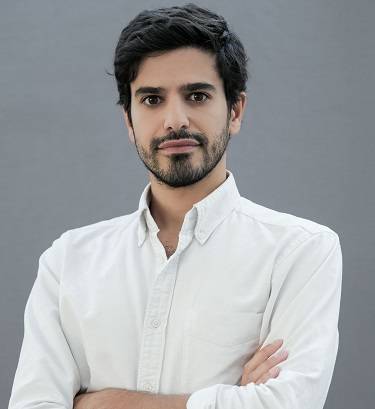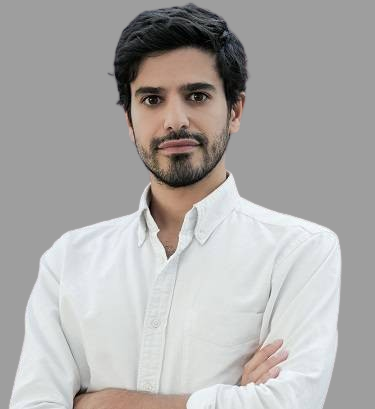Enabling healthcare professionals with AI-enabled workflows
Christian Allouche is a serial entrepreneur and co-founder of Gleamer, a start-up that develops medical-grade AI solutions to support radiologists and emergency physicians in their daily work. A passionate professional about healthcare transformation, Christian believes in fostering benefits of AI to usher in a new revolution within medical systems. He speaks on an array of topics. Excerpts from an interview:
Conception of GLEAMER
Back in the time, we felt AI would become the new standard of care in medical imaging, says Christian. He adds that since radiology has become crucial in the patient care, the radiologists’ workload has skyrocketed during the last two decades, and despite technological progress, imaging exams are complicated to read out, presenting a very large panel of potential pathologies to search for. “This opens the door to medical mistakes and calls for AI as a safety net to companion radiologists. We want to companion imaging users with a suite of Artificial Intelligence solutions covering a wide range of clinical applications. Thus, GLEAMER was born.”
AI in Radiology – BoneView : AI companion for bone trauma X-Rays
Observing that the first thing radiologists are waiting for from AI is a safety net, Christian says that this means a software can precisely detect subtle lesions that might have a clinical impact for patient, and it can offer peace of mind to radiologists in their stressful daily routine and improve quality of care. “This product philosophy is at the heart of our current and future roadmap.”
The company’s first product, BoneView, precisely detects fractures and other lesions (traumatic or not) in MSK X-rays and display the results directly in the user’s PACS (the software they use to read out medical images) so that radiologists can have an instant and reliable result when interpreting bone X-rays. Today, BoneView has been touted as the only software of its class whose clinical performances have been published in Radiology, the most prestigious peer-review journal in Radiology. “This publication was a major milestone as it proved that using this software reduced by 30% the number of missed fractures. BoneView is now a real companion for the 3.500 MDs using it in their daily clinical routine.”
The AI Journey – Challenges Galore
Christian attributes ‘intended use ‘as one of the calculated risks involved in using AI. “One organization must use an AI software precisely for what it is intended to be used, which is described in the Technical File. For example, if a software is designed to triage abnormal vs normal X-rays, it should not be used to detect anomalies, because it has not been clinically validated for this.” The second risk, he identifies as generalization. “In AI, the big challenge consists in designing software that can generalize on data they were not trained on. It occurs that some software work well with specific data but cannot generalize to new data (i.e. data from another country). Organizations that are using AI must ensure that the underlying model generalizes.”
AI’s Impact on Medtech
AI will have an enormous impact on the medical industry, as it is the only solution to the following critical problem as there is a global shortage of MDs, and in parallel, medicine is becoming increasingly complex, with increasingly patient data to deal with. It is true for all medical specialties, and above all for radiology, predicts this professional.
Leadership Traits
Being ambitious, trustful and caring form a very important part of one’s personality, according to Christian. “I’m a pragmatic dreamer. I see the big picture but love to perform small step in my day to day. I’m an energic person who can bring people with me. I’m quite good at sharing my vision give desire to come onboard.”
The Success Mantra
Doing things that perfectly work is the success mantra for this technology enthusiast. “Because for AI to become a new standard, it needs to really bring help and be useful in its semi automating task. And to do so, AI must be almost perfect. Being humble and lucid while seeing big. It is a hard equilibrium one must find. When I talk to a founder, I’m always looking this kind of subtle equilibrium.”
Words of Success
Following one’s instinct, because some time, big decision (like which product are we first going to develop first?) are not purely rationale, opines Christian. “Being courageous and keep walking fast when things get unclear also works. When we worked during 2 years at designing BoneView, a lot of radiologists were not convinced about it, maintaining they did not need any help for finding fracture which in most cases is not a life-threatening condition. “But we were sure of bringing in that comfort, peace of mind, and performance gap, which in turn would create adoption and we were right. It took us a lot of guts to keep maintaining our direction for 2 years, but we can now say with confidence that we have successfully developed one of the killer applications in AI for Radiology.”

Company: GLEAMER
Website: www.gleamer.ai
Management: Christian Allouche, CEO
Founded Year: 2017
Headquarters: Paris, France
Description: GLEAMER develops AI-powered softwares to enhance diagnostic performance and productivity in Radiology.




